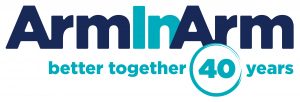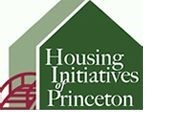

AIA and HIP Launch Innovative Collaboration to Prevent Evictions and Stop Homelessness as COVID-19 Rages On
It’s August, and for some, the beginning of a new month brings hope and the chance to start over. But rent is due the first of the month, and the looming threat of a big bill, coupled with job losses and hour restrictions due to the pandemic, can be devastating for many low-income families.
For Franklin, a single father of two teenagers, COVID-19 has caused the kind of severe financial distress that makes families dread the first of the month.
Due to health complications, Franklin was immunocompromised for most of the pandemic, left stranded in his home, unable to work or go to public places for fear of exposure. His income quickly dwindled, and his family fell into crippling debt—over $6,000 owed. This sum put the family’s housing in jeopardy and risked Franklin’s only income as the on-site property manager in his apartment building.
With NJ’s moratorium only a temporary reprieve and the pandemic’s end nowhere in sight, Arm In Arm and Housing Initiatives of Princeton (HIP), two Mercer County nonprofits with nearly 55 years combined experience serving low-income neighbors, began collaborating to meet the need of the County’s community. In July, Arm In Arm and HIP sought to form a unique cooperative with a $100,000 grant from Princeton Area Community Foundation’s COVID-19 Relief & Recovery Fund—a collaboration designed to speak to this modern day problem with a modern day solution. Together, the nonprofits are cutting through the red tape to ease the financial repercussions felt by households in the community.
According to Arm In Arm Executive Director David Fox, HIP’s partnership and the Community Foundation’s funding will “provide extraordinary rental assistance to help 50-75 families in need, who have a clear path to sustainability.”
HIP’s Chair, Carol Golden, adds: “The people struggling to pay their rent during this unprecedented crisis will find it much easier to get the help they need.”
So far, Arm In Arm, HIP and the Community Foundation have provided assistance to 18 families with under 30% of the funding, at an average assistance level of $1,611—more than 3x what Arm In Arm or HIP could offer alone.
In a little over 4 weeks, that $100,000 has allowed Arm In Arm and HIP to match, dollar for dollar, rent and mortgage assistance to those who need it most—those just like Franklin.
Franklin was approved for $2,500 in direct rental aid, and through further negotiations, the family’s landlord agreed to cut their owed back rent in half. Franklin was able to supply the remaining balance of less than $700, and his family’s rent is now fully paid through August. He is also back to full health and has since returned to work.
Yet, Franklin is not alone in his experience. His reality is one shared by many renters, including folks who for the first time in their lives are considered low-income because of the pandemic. Many families face escalating anxiety as the first of the month approaches, knowing they cannot meet their expenses and another bill added means falling farther and farther behind.
Across our County, the coronavirus crisis has starkly highlighted the fragility of the so-called “American Dream.” Steady employment has dropped, with companies drastically reducing hours or shuttering completely. Unemployment benefits have been unpredictable at best, with the rising rate simply overwhelming government offices. An already stretched budget pre-COVID is now a deficit with zero dollars in income. And that’s not even accounting for those experiencing the harrowing virus firsthand and the mounting medical bills that follow.
Recent statistics show that over a third of people in the US are concerned they will lose their housing, and anywhere between 19 and 23 million renters are at risk of becoming homeless in what’s being termed an incoming “evictions tsunami.” Standard public funding only offers help to households with evictions notices; ironically, the current eviction moratorium in place is preventing many households from receiving a notice and thus the very assistance that can restabilize them.
The collaborative effort on the part of Arm in Arm, HIP and the Community Foundation, has allowed for greater efficiency, and therefore, greater effectiveness in addressing our community’s need.
“We are supporting the partnership formed between Arm In Arm and Housing Initiatives of Princeton, as they have been working tirelessly to help our neighbors who have been devastated by the economic fallout from this pandemic,” said Jeffrey M. Vega, President & CEO of the Community Foundation, “By working together and sharing their expertise, we believe they will have a great impact in our region.”
####
For more info, contact Arm In Arm: Jenn Johnston 609-396-3910 jennj@arminarm.org
For more info, contact HIP: Carol Golden cgolden1212@gmail.com
